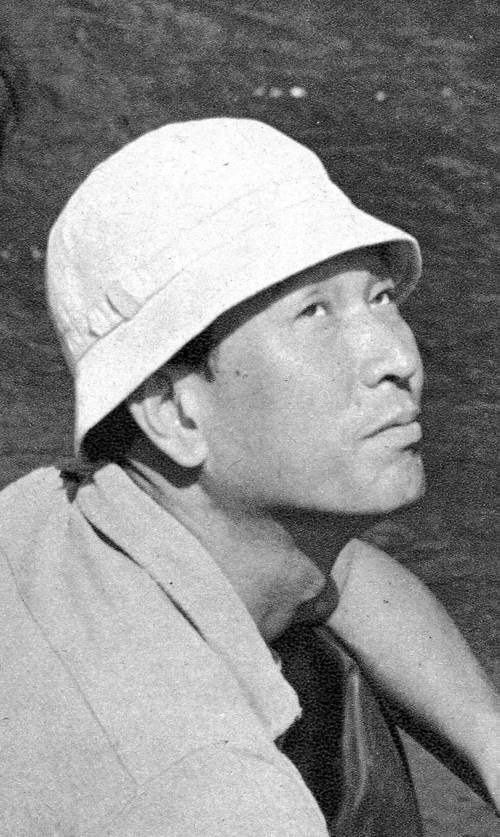
FAQ About Akira Kurosawa

Who was Akira Kurosawa?
Akira Kurosawa was a highly influential Japanese film director and screenwriter, renowned for his innovative filmmaking. He was born on March 23, 1910, in Tokyo, Japan, and had a career that spanned over five decades. Kurosawa is celebrated for his distinctive cinematic style and storytelling techniques, which have significantly impacted both Japanese and global cinema.

What are some of Akira Kurosawa's most famous films?
Akira Kurosawa is best known for classic films such as Rashomon (1950), Seven Samurai (1954), Ikiru (1952), Yojimbo (1961), and Ran (1985). These films are celebrated for their innovative narrative structures, complex characters, and striking visual compositions.

How did Akira Kurosawa influence global filmmaking?
Akira Kurosawa's influence on global filmmaking is profound. His work has inspired countless filmmakers worldwide, including notable directors like George Lucas, Martin Scorsese, and Steven Spielberg. Kurosawa's use of dynamic editing, exceptional storytelling, and visual techniques has been emulated in various international films. Rashomon introduced a narrative technique involving multiple perspectives, which has been widely adopted in cinema.

What is the significance of Akira Kurosawa's film 'Rashomon'?
Rashomon is significant for its unconventional narrative structure, where the same event is recounted from multiple perspectives, each offering differing accounts of reality. Released in 1950, it not only brought Kurosawa international recognition by winning the Golden Lion at the Venice Film Festival, but it also introduced Western audiences to Japanese cinema and sparked widespread interest in Japanese film-making worldwide.

Why is 'Seven Samurai' considered a classic?
Seven Samurai, released in 1954, is considered a classic due to its riveting storytelling, well-developed characters, and impressive battle scenes, which have influenced action and adventure films around the world. The film's structure and themes have been replicated in various forms, including the popular Hollywood remake, The Magnificent Seven. It is praised for its cinematic technique and has been a significant influence on the genre of epic storytelling in cinema.

What are some common themes in Kurosawa's films?
Common themes in Akira Kurosawa's films include the struggle between individual desires and societal expectations, the nature of truth, ethical dilemmas, the impact of war, and the quest for justice. His characters often wrestle with moral conflicts and personal identities, reflecting broader philosophical questions about humanity and existence.

How did Akira Kurosawa begin his career in film?
Akira Kurosawa began his career in the Japanese film industry in 1936 as an assistant director at P.C.L. Studio, which later became Toho. He gained experience under prominent directors and quickly progressed due to his talent and diligence. Kurosawa made his directorial debut with the film Sugata Sanshiro in 1943, marking the start of his illustrious career.

What awards did Akira Kurosawa receive during his career?
Throughout his career, Akira Kurosawa received numerous accolades, including the Academy Award for Lifetime Achievement in 1990, the Golden Lion for Rashomon at the Venice Film Festival, and the Silver Lion for Yojimbo. He also won the Palme d'Or at the Cannes Film Festival for Kagemusha in 1980. His work has earned him high praise from film critics and institutions globally.

What is Akira Kurosawa's legacy in the film industry?
Akira Kurosawa's legacy in the film industry is marked by his groundbreaking contributions to cinematic storytelling and technique. His innovative approaches to narrative structure, character development, and visual style have had a lasting impact on both Japanese and international cinema. Kurosawa has inspired generations of filmmakers and continues to be revered as one of the greatest directors in the history of film.

Did Akira Kurosawa work in any other roles besides directing?
In addition to directing, Akira Kurosawa was actively involved in screenwriting, editing, and occasionally producing his films. He often collaborated closely with his crew, taking a hands-on approach to every aspect of filmmaking, which ensured his creative visions were fully realized. This multifaceted involvement contributed to the cohesive and distinctive quality of his works.

How did Kurosawa's films address social issues?
Kurosawa's films frequently addressed social issues such as poverty, corruption, and moral decay, often underscoring the human condition and societal challenges. Notable examples include Ikiru, which critiques bureaucratic inefficiency, and High and Low, which explores class disparity. Through layered narratives, Kurosawa artfully engaged with these societal themes, prompting viewers to reflect deeply on these issues.

What techniques did Akira Kurosawa use in his filmmaking?
Akira Kurosawa employed a variety of techniques that became his signature, such as dynamic camera movements, powerful editing, and the use of weather elements to enhance narrative emotion. Techniques like the distinctive wipe transitions, multi-camera filming for dynamic action scenes, and his use of axial cuts are noteworthy and have influenced numerous filmmakers around the globe.

What was Kurosawa's approach to storytelling?
Kurosawa emphasized compelling storytelling with layered narratives and well-developed characters. He often employed non-linear storytelling, as seen in films like Rashomon. Kurosawa’s approach frequently combined elements of traditional Japanese drama with Western literary influences, resulting in universal stories that resonate across cultures.

How did Kurosawa's work impact Japanese cinema?
Kurosawa's work revolutionized Japanese cinema by bridging traditional and modern filmmaking techniques, thereby elevating the industry's global prestige. His success and international recognition brought attention to Japanese cinema as a major creative force, paving the way for subsequent generations of filmmakers within Japan to explore innovative narratives and styles.

What challenges did Akira Kurosawa face in his career?
Throughout his career, Kurosawa faced several challenges, including financial difficulties during film production and struggles to maintain creative control over his projects. Despite being internationally acclaimed, he experienced periods of domestic neglect in Japan, where his films were sometimes criticized for being too Westernized. However, his persistence in artistic vision ultimately enabled him to overcome these obstacles.

Were any of Kurosawa's films adapted from literature?
Yes, several of Kurosawa’s films were adaptations of literary works. Throne of Blood is an adaptation of Shakespeare's Macbeth, while Ran draws inspiration from King Lear. His film The Idiot is based on Fyodor Dostoevsky's novel of the same name, and The Hidden Fortress shares themes with American Westerns and also inspired the creation of Star Wars.

Did Akira Kurosawa collaborate with other famous directors?
While Kurosawa primarily worked independently, he received support and admiration from other renowned directors worldwide. Directors like Francis Ford Coppola and George Lucas helped secure funding for Kurosawa’s film Kagemusha in 1980, showcasing the strong international camaraderie and respect among influential filmmakers who admired his work.

What style of music accompanied Kurosawa's films?
Kurosawa’s films often featured music that was carefully chosen to enhance the emotional and narrative depth of his movies. Composer Fumio Hayasaka frequently collaborated with Kurosawa, creating scores that were as dynamic and expressive as the films themselves. Music was a crucial element in Kurosawa's storytelling, often complementing the visual and emotional intensity of the scenes.

What is the 'Kurosawa effect' in filmmaking?
The 'Kurosawa effect' refers to the distinctive style and techniques pioneered by Akira Kurosawa, which have become influential elements in filmmaking. This includes his approach to dynamic editing, compelling storytelling, and innovative use of camera angles and movement. Filmmakers around the world have adopted these techniques, underscoring Kurosawa’s enduring influence on the cinematic arts.

Are there any documentaries about Akira Kurosawa's life and work?
Yes, there are several documentaries that explore the life and work of Akira Kurosawa. Notable among them is Kurosawa: The Last Emperor (1999), which provides a comprehensive look at his career and influence. Documentaries such as these offer invaluable insights into Kurosawa's methods, influences, and contributions to the art of filmmaking.
